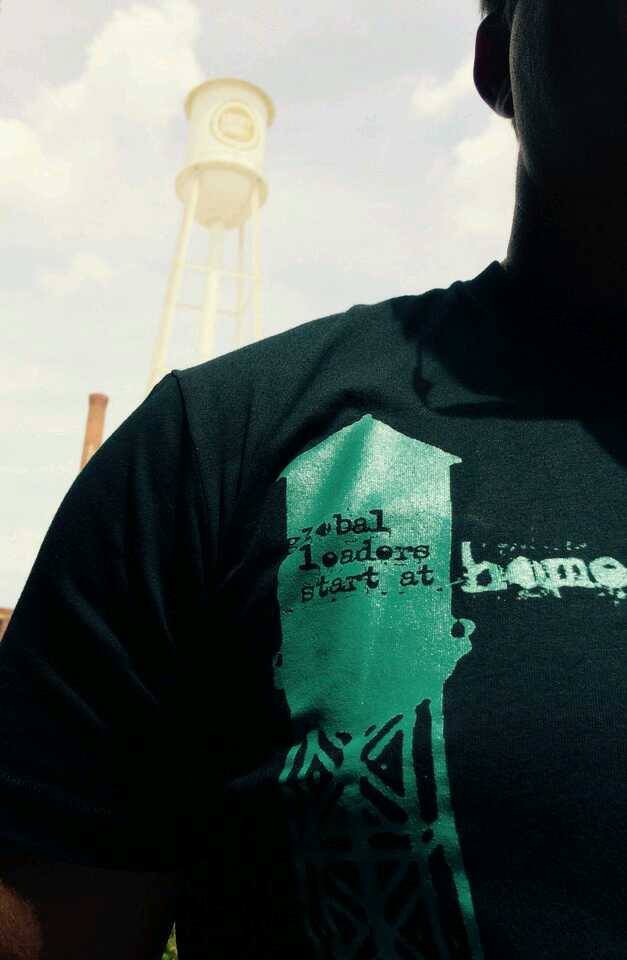This post was written by Chris Castro, Fuqua MBA 2017 and a CASE Scholar, in September 2015. After graduating from Loyola Marymount University, Chris was a 5th and 6th grade teacher in Honduras for the nonprofit organization The Farm of the Child. He spent five years working with City Year before becoming to Fuqua.
Although first-year Fuqua students in August are reminded multiple times a week that we do not fully understand how busy we will be in a month, I think I speak for all of us when I say, “Well, we feel pretty busy now.” Every day the Class of 2017 Duke MBA Facebook page fills up with trampoline events and flag football requests. It really is difficult to decide what to prioritize. Do I finish my 120 pages of reading for Global Institutions and Environments (GIE) or should I eat a bunch of barbecued meats with our Brazilian classmates?
When a group of second-year Fuqua students began sending out Facebook posts about Day in Durham, amongst the other Facebook noise, I was pretty sure that the idea would not gain much traction. The second years promised that Day In Durham would be an opportunity to get us out of the Fuqua bubble. Judging by how much our class was enjoying the Fuqua bubble I thought their target audience for their marketing wasn’t quite spot on.
However, the Impactful Stewardship that we all said we cared about in our admission essays turned out to be real. Leading up to the event more and more of my classmates signed up. We shared which focus we selected, providing a unique way to learn something new about our classmates – adding it to the list of invariable intros, “Hi…where are you from? What did you do before Fuqua? What did you come here to do? Are you going to Nick Williams’ place at Station Nine tonight? Which focus did you pick for Day in Durham?”
Although many of us wear our future function or industry on our sleeves, this new question offered a window into what else fuels our classmates’ drive. Were people fired up after our latest GIE class about sustainability? Or was healthcare, education, impact investing, business revitalization or social entrepreneurship their passion? As a person who is thinking of switching away from the social sector temporarily (or at least “profit-curious”) I decided to slide a little out of my comfort zone of education and take my chances with social entrepreneurship.
Waking up at the crack of dawn for a Saturday – 9:45am – intrepid second-year planners from CASE and Net Impact, Dean Bill Boulding, and Erin Worsham, Executive Director for the Center for Social Entrepreneurship (CASE), welcomed us and introduced our keynote, Casey Steinbacher, President and CEO of the Durham Chamber of Commerce. Casey shared an historic overview of the revitalization of the Research Triangle, including the trade secret of Durham, and the secret sauce as to why Durham seems to be on the top of all the “up and coming” cities lists. As a transplant to North Carolina (myself and 95% of the rest of the attendees) we were able to see the path-dependent ways that Durham developed over the years – from a tobacco and textile city center to biotech and accelerator hub that it is today.
Casey made it clear that Fuqua students are privileged here in Durham – much more than our peers at other business schools (#2, 3 and on). The industries that come and stay in Durham come for us – that is by design. There are not many places in the world where the entire ecosystem is built with me in mind. The privilege of being a Fuqua student in Durham stuck with me throughout the day as I thought about what my responsibility is to a city that has opened itself up to maximize my experience here and my potential career opportunities.
Leaving Geneen auditorium with my privilege fresh in my mind, we lunched and headed onto our respective buses and off to our service sites. The social entrepreneurship focus group arrived at the Triangle Residential Options for Substance Abusers, Inc. (TROSA) and were welcomed by a Fuqua alum to the operation. TROSA is a self-sustaining business model that relies on the profits from the products that residents-in-recovery create during their two-year stay on campus.

TROSA’s model is more intensive than a typical substance abuse program as it requires a longer commitment to complete the program – but due to its creative sustainable model it is able to provide the benefit of counseling, room and board, and work training programs all free of cost for those battling serious addictions. Our tour consisted of knowledgeable residents guiding us through many of the profit centers of TROSA – moving, automotive, in-kinding, the thrift store, lawn care, and more.
As we closed out the day we were able to hear from a panel featuring Kevin R. McDonald – Founder, President, and CEO, TROSA, Inc., Dan Baum, Executive Director, The Redwoods Group Foundation, Katie Wyatt, Executive Director, KidzNotes, and Geraud Staton, Director of Training and Content, Bull City Forward and CEO of Helius LLC.
Each shared valuable insight about starting up social ventures in Durham and added to Casey Steinbacher’s pitch about why Durham is the place to start your venture. On the bus ride back to Durham I left feeling a lot of hope for the Durham community. Casey and the panelists shared that Durham is not where we want it to be as a city; that not all communities have kept up with the growth that has put Durham where it is today; that the communities that relied on the jobs from tobacco and textile have not found a way into the industry.
However, I could tell from the panelists that there are passionate and innovative people who really care about Durham – all of it. Moreover, each individual’s connections are interwoven throughout multiple sectors, with Fuqua as an important piece. As was repeated multiple times throughout the day, you need to build a coalition of individuals in any venture. If the venture, which we embarked on today, was, “Make Durham Its Best”, I am excited to know that at least a network of two hundred plus Fuqua first-years are starting the conversation.
I cannot wait to see what happens when we really start to connect with Durham this fall on our own or through Fuqua on Board, Net Impact, and other opportunities. I know a group that is committed to using their Saturday to engage their community is ready to put Impactful Stewardship to practice and that is a beautiful thing.

